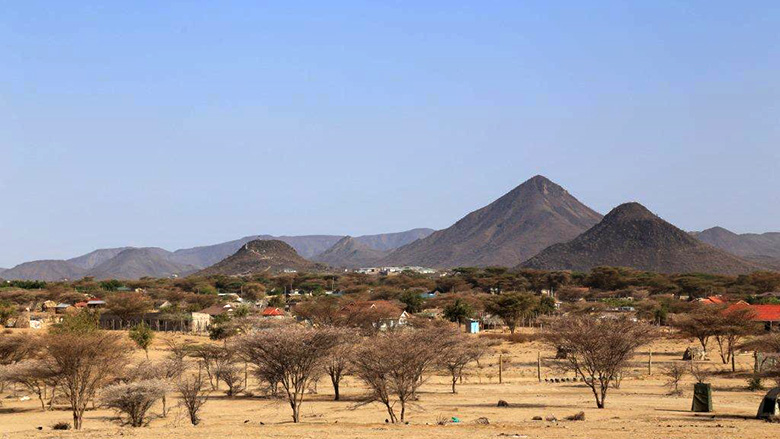LODWAR, October 8, 2015 – The governments of Kenya and South Sudan and other stakeholders recently inaugurated a new project that will upgrade a critical trade route connecting the two countries.
Through the East Africa Transport, Trade and Development Facilitation Project, a 309km trek of land will be rehabilitated, creating a safe route for goods and people along Lokichar – Nadapal/Nakodok part of Eldoret-Nadapal/Nakodok road in the north-west region of Kenya. The $500 million World Bank Group (WBG) credit will also support other activities designed to improve the livelihoods for those living in the region, and increasing regional competitiveness.
“The upgrading of this important corridor will improve transport and trade between Kenya and South Sudan, and also reduce conflicts between the pastoral communities in the region,” said Josphat Nanok, Governor of Turkana County. “Improvement of the corridor through Turkana, the “Cradle of Mankind” and the largest of Kenya’s 47 counties, is long overdue.”
Currently no more than a rugged track in the wilderness, the Kenya-South Sudan “highway” runs through Trans Nzoia, Turkana and West Pokot counties. It is difficult for vehicles to get through the deteriorated area, having to go slowly and frequently breaking down. Travelers run the risk of encountering bandits along the route, and pay fares an average of six times the fare for a comparable distance on good roads.
In addition to the reconstruction of the road, the project will also finance the installation of optic fiber cable across Turkana, Trans Nzoia and West Pokot counties, as well as the development of pastoral markets, milk coolers, slaughter houses and livestock holding areas in selected locations.
“This new project is unique in its own right, because of its size, geographical coverage, and the range of activities it will undertake, targeting the specific needs of the vulnerable communities in Trans Nzoia, Turkana and West Pokot counties,” said Diarietou Gaye, World Bank Country Director for Kenya. With a combined population of 1.5 million people, the counties are home to some of the country’s poorest and most vulnerable people.
The Kenyan government will contribute $176 million to the total cost of $676 million of rehabilitating this section, while other development partners including the African Development Bank, German Development Bank, and European Union, have expressed interest to finance reconstruction of the remaining sections.
The other 400km section in South Sudan, from its capital Juba to the border with Kenya, will be funded by an $80 million credit from the WBG, as well as financing from other development partners, including the African Development Bank and China.
In addition to upgrading the trade and transport corridor, the project will facilitate construction of a 1,000 km fiber optic connection between Kenya and South Sudan and a one-stop border post to facilitate cross-border transport and trade between the two countries. Movement of goods and people from Kenya’s Port of Mombasa to Juba, which now takes on average five to eight days, will be much faster when the corridor is upgraded.
The project will also provide water and sanitation services, open up domestic and export markets for livestock, agricultural produce, fisheries and mineral products, and facilitate extraction of petroleum resources in the recently discovered oil fields in Turkana and neighboring counties. The few local towns I the region will expand, creating jobs and income opportunities for young entrepreneurs.
The corridor is part of the East African Community trade and transport development network, and an important part of the Horn of Africa Initiative – an effort by the WBG, United Nations, Islamic Development Bank, African Development Bank, African Union Commission and the European Union – to promote collaborative political, diplomatic and development solutions among counties to the issues of fragility, vulnerability and insecurity.

